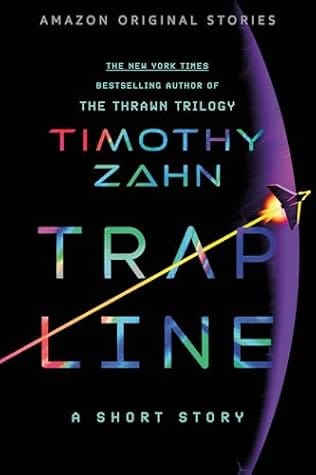The Long View 2002-06-10: Moral Hazards
I used to make a habit of spending my monthly book budget on Amazon through John's affiliate links. I suspect John never truly made a lot of money this way, but he was an early adopter, so the field was less crowded back then. He made a couple bucks in commissions in the second week of trying it. That is more than I have made in years through Amazon affiliate links.
Moral Hazards
I can be awfully slow in the uptake. I have gone through life making light of the ethical perils to be found at the intersection of marketing and journalism. I have done a little of both, mostly in connection with business-to-business publishing, and I never saw what all the huffing and puffing was about. On the other hand, for that kind of work, I rarely had much discretion about what to promote. That is not the case with my website, however. Recently, I find that I have created the appearance of a conflict of interest.
Two weeks ago, I joined the Amazon.com Associates Program. It works like this. Webmasters put icons on their sites for Amazon products; surfers click through to the Amazon site. If a sale results, the webmaster gets a small commission. Simple enough, and obviously it speaks to my condition. I have all these book reviews on my site; why not link to them?
If you want to link to particular books, rather than to classes of books, setting up the links is labor intensive. So, I had occasion to look at every review on my website, going back several years. I was struck by the fact that they tend to be by obscure authors. Few of the books had ever enjoyed large sales. The reviews were generally favorable (otherwise I would not have bothered with the books), but they usually had something disparaging to say. A couple are outright pans. I don't regret the criticisms, but I reflected that they could reduce the number of clicks to Amazon.
If you write reviews and you want commissions, then obviously the thing to do is review books by well-known authors and praise them to the skies. If nothing else, that will get you into the search engines quickly enough, and fans will link to you. The reviews then become what in effect are low-graphic ads.
It could even be that the long reviews I favor would aid sales. One of the rules of direct mail is that the package should have at least three pages of text for the customer to read. Apparently, if people can be persuaded to invest the time to read that much material, they are much more likely to go the extra step and buy the product.
In reality, there is little danger the commissions from the Associates relationship will do much to direct my choice of review material, or anybody else's, I suspect. Over a seven-day reporting period, with dozens of link buttons on my site, commissions came to just $2.45. That's American money, of course, but only a tiny little soul could ever change hands for such sums. As a practical matter, the clicks to Amazon serve chiefly to indicate what items people like best. (There is a persistent and disturbing predilecton among visitors to my site for the review of Anno Dracula.)
* * *
In any case, I now have more insight into how people sell their credibility like space on a bill board. This was the second sin of the Arthur Andersen accounting partnership. (The first was that they declined to red-flag the fact that the Enron corporation was, in effect, balancing its books by shorting its own stock.) The moral hazard was that the people who were supposed to be selling advice about stocks to clients were in cahoots with the people who were supposed to be doing objective assessments of the companies in question. This did not conduce to either sound advice or reliable audits. The really interesting thing is that the advisors knew perfectly well that the information on which they based their recommendations was cooked; they demanded themselves that it be cooked. Nonetheless, like superstitious astrologers, they still believed other advisors' assessments, no matter how tainted they knew their own advice to be.
Speaking of superstitious astrologers, readers of my recent review of Erik Jan Hanussen may remember that he did a stint as a journalist-extortioner. The principle was simple: follow some rich and respectable subject into low-life Vienna, write up an expose' of his adventures for publication in the extortioner's tabloid, and then present the subject with a bill for killing the story. Late Habsburg Vienna probably did not invent this practice. Certainly it was not the last place where the institution flourished.
In advanced countries today, we rightly deplore occasions when the journalists of less settled lands are harassed by their governments, or assassinated in private vendettas. Still, we must remember the fact that some journalists are treated like criminals because they are. There seems to be a stage in the evolution of the news business when it lends itself to money-making schemes. Perhaps this has something to do with the inability of the courts to enforce libel laws, so the rich turn to violent self-help. The press deserves the benefit of the doubt, of course. And sometimes, the press is an argument against free speech.
* * *
As for myself, I will continue to put those Amazon buttons up. Danny Yee, whose site is a gold mine of book reviews on all subjects, used to circulate them with little disclaimers to the effect that he had no interest in the books' success. Even he has stopped doing that, however.
Besides, bribery does not necessarily buy approbation. As Max Bialystok told the New York Times theater editor on the opening night of Springtime for Hitler: "Here's $100. Enjoy the play."

Comments ()